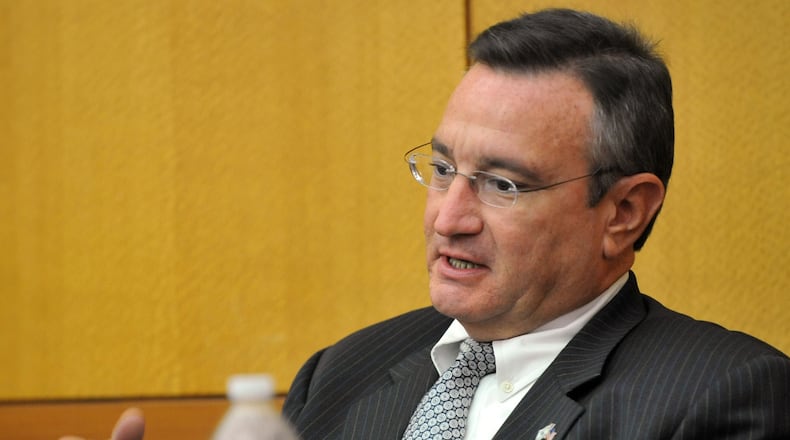A member of the state commission that investigates allegations of misconduct by judges told a Georgia House committee Thursday that his panel is in the midst of a “perfect storm of dysfunction,” providing ammunition to lawmakers aiming to make changes in the system.
Richard Hyde, a member of the Judicial Qualifications Commission and the group’s former longtime investigator, was one of two commission members who accepted an invitation to appear before a House committee studying the issue.
Voters in November will decide whether to amend the state constitution to give the General Assembly control over the agency. Assuming that the measure would pass, the Georgia House created the committee this year to recommend changes in the JQC.
Since 2007, the commission has removed almost six dozen judges. Some critics have maintained that the move to alter the commission is designed to help settle political scores for connected judges who have tangled with the commission.
Hyde, who was reappointed to the commission less than a year ago, both defended the past work of the panel and criticized the way it currently functions.
Hyde took the committee through a series of cases he handled. While he didn't attach names to the cases, one he described involved one of the proponents for changing the JQC, state Rep. Johnnie Caldwell Jr., R-Thomaston. Caldwell resigned as a judge from the Griffin Judicial Circuit in 2010 after being accused of making rude, sexually suggestive comments to a female attorney.
The House committee has previously heard from some judges who complained about their treatment by the JQC. But the committee's chairman, state Rep. Wendell Willard, R-Sandy Springs, said they haven't asked Caldwell to appear.
Hyde told committee members that a couple of the judges who testified before them in recent weeks were owed an apology. But he also said, “The way we investigate judges in Georgia is used as an international model.”
He said in 90 percent of the cases in which judges left or were removed from the bench, the judge resigned when presented with the facts of the case rather than face a hearing.
However, he said that in the past year commission members haven’t shown up for meetings, and some of them aren’t given information about cases brought to the state agency.
“I think we are impotent, we have had a lack of leadership for various reasons,” he said.
State Rep. Trey Kelly, R-Cedartown, a member of the House committee and a supporter of making changes to the JQC, said, "As of today, the JQC has no director, no interim director, no investigator … no process to deal with complaints."
One commission chairman, Lester Tate, resigned in April, saying the work of the commission was threatened by political and other outside forces that are interested only in protecting jurists connected to the right people.
In August, the new chairwoman, Superior Court Judge Brenda Weaver, resigned after enduring weeks of criticism for pushing to indict a newspaper publisher who sought public records.
The executive director of the JQC, Mark Dehler, resigned in August.
About the Author
Keep Reading
The Latest
Featured




